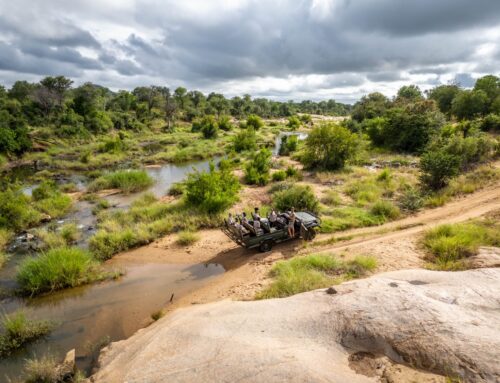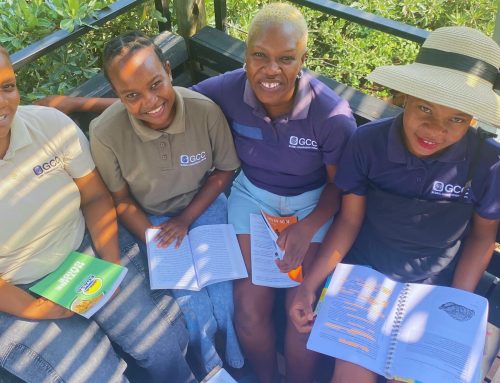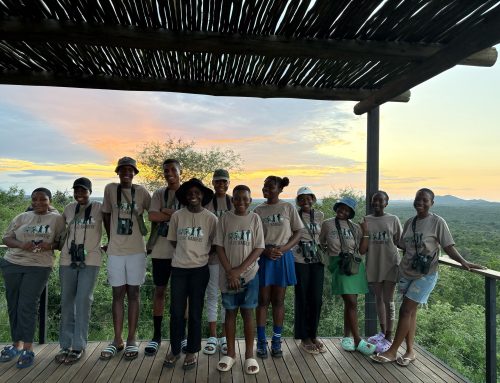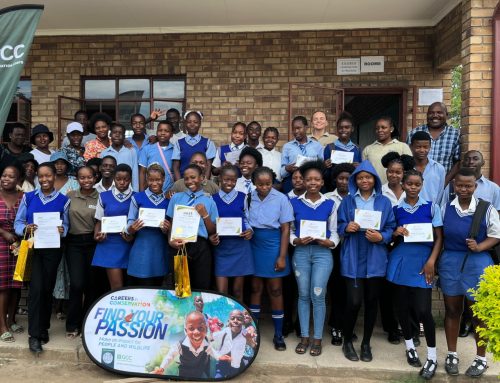GCC’s Matt Lindenberg chats with field ranger trainee – Sifiso Surprise Lukhele – about his love for animal conservation, why he wants to become a field ranger, and how coming from a poor family should never stop you from dreaming.
Matt Lindenberg: Can you tell us your name and where you come from?
Sifiso Surprise Lukhele: My name is Sifiso Surprise Lukhele and I come from Cottondale, situated in Acornhoek.
ML: Why did you want to become a field ranger?
SSL: It has been my passion since I was young. I just want to protect the environment so that future generations can also see all the animals, plants, and other things in nature.
ML: Do you have any family or friends who work in conservation?
SSL: My uncle works in the Klaserie Private Nature Reserve, so since I was young, I have visited him and seen the importance of conserving nature and protecting the environment for the benefit of the next generation.
ML: When did you first develop your interest in animal conservation?
SSL: It was my first trip to see my uncle. I went there and saw how nature reserves are a good thing, so my passion really started then.
ML: What is your favorite wild animal and why?
SSL: My favorite animal is the elephant because it takes down the trees, which creates a path for other animals, such as the impala, but also provides opportunities for them to eat. They are like ecosystem engineers.
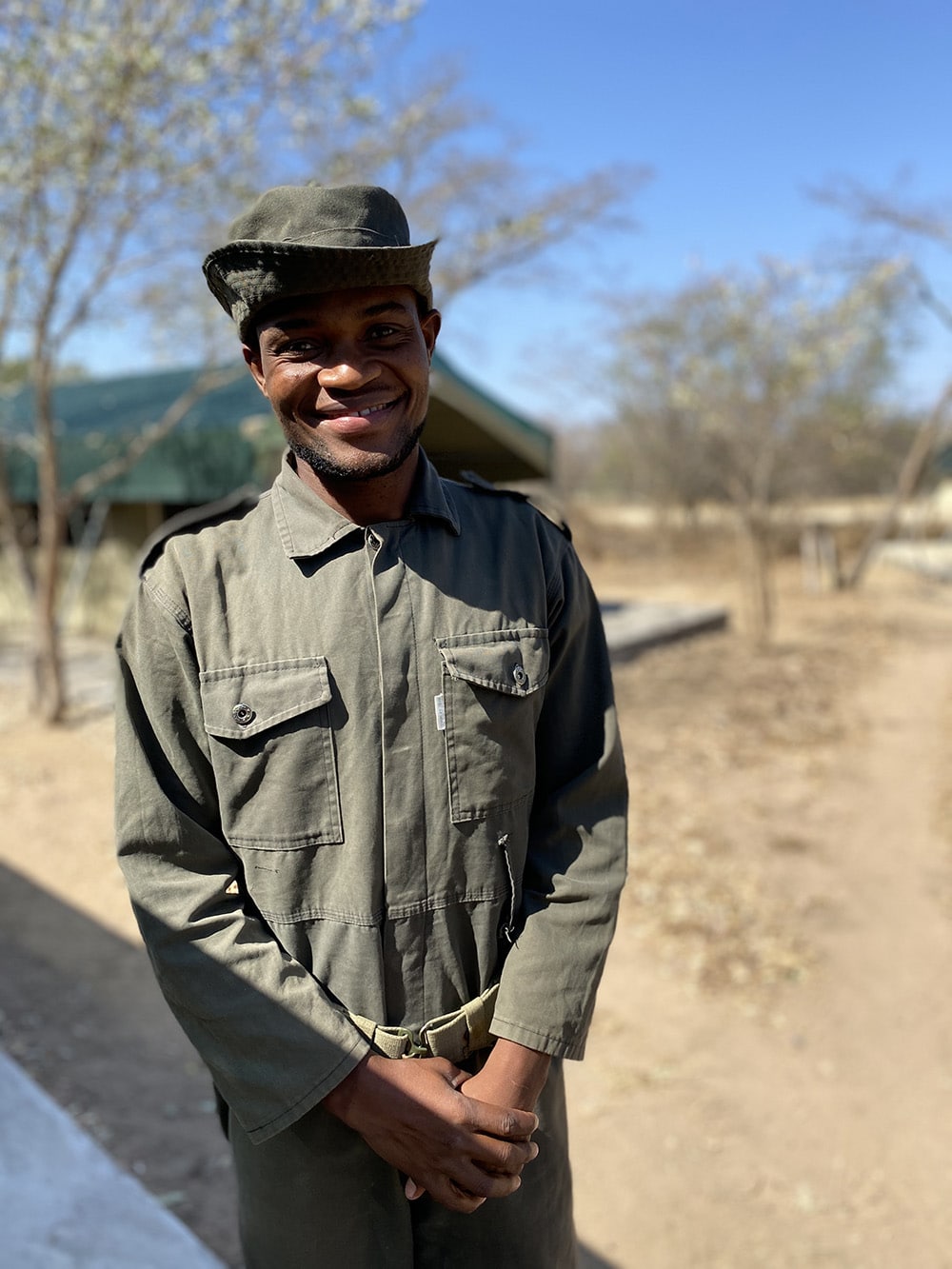
ML: You recently took part in the selection process to train as a field ranger, how difficult was it?
SSL: For me, it was hectic. But sometimes when you want something in your heart, you will do everything to succeed. It doesn’t matter how hard it is. I really wanted to work in a game reserve in the future, so I did it.
ML: How did you feel when you received the email inviting you to selection?
SSL: I was happy, really happy. My dream had come true. I was really excited. I have wanted to work in conservation for a very long time because I really like being in nature and protecting the animals. This is where I want to be.
ML: What advice would you give young kids wanting to follow in your footsteps?
SSL: The first thing I would tell them is to take care of your environment, protect everything that you have because we cannot live without these natural resources, they do a lot of things for us, and we need to take care of them.
ML: On this course, what has been the most challenging part for you?
SSL: There hasn’t been anything challenging so far. The hardest part for me was the selection, that was the biggest challenge. But now it is not too challenging. I am used to it now. I was born to do this!
ML: If you weren’t working as a field ranger, what other careers interest you?
SSL: Since I was young, I have wanted to work in a reserve. I would like to be a tour guide too. That was my plan B.
ML: You have participated in the Eco Children summer workshops. Can you tell us about this?
SSL: I started attending the workshops in 2009. I started as a student, where I learned about water pollution and land pollution etc. and then they taught us about the importance of birds. I remember learning about the endangered ground hornbill and how we need to protect birds. So, they taught me a lot, and also now as a trainer, I teach people about the importance of our animals and trees.
ML: Who is your role model or hero in life?
SSL: My hero is Corné [Corné Havenga, General Manager of Eco Children]. She has helped me a lot since I was young. I met her at Eco Children and I think that she saw how much I liked nature. I also told her that I really wanted to do this as a career and asked her for a chance to work for Eco Children so I could share my knowledge of nature conservation. She is my hero.
ML: If you had a message for Corné, what would you like to tell her?
SSL: I would like to say thank you for everything that you have done for me. It wasn’t easy. Now I know how to save nature and what exactly we need to do to conserve nature. She taught me a lot. If it hadn’t been for Corné, I would surely not be following this career path. She really helped me a lot.
ML: When this program ends, what are you looking forward to doing?
SSL: For the next step, I would like to get a job as a field ranger. That’s the first thing. And from there, as I said, I would like to be a tour guide so I will do that via distance learning, but if there is an opportunity, I would also like to attend a course. It all depends on the situation where I will be working.
ML: If you had a magic wand that you could wave over the communities living next to the Kruger National Park, what would you wish for?
SSL: I would like to start some programs about our natural resources because I feel that a lot of people are damaging the environment because they don’t know any better. So, I think if I can establish some programs, people would understand why they need to protect the animals and plants. They wouldn’t cut trees, for example. If they knew how important they were, they would save them.
ML: Is there anything else you would like to add?
SSL: I was born into a poor family. My mom died in 2017 while I was still at school. It was at this time that I met Corné and she saw that something was not right and she gave me opportunities to grow. When you come from a poor family, it doesn’t mean that it is the end of the world, the only thing you have to do is concentrate, know what you want, and stick to your goals. I would also like to say thank you for the opportunity that GCC has given me to follow my dream.

